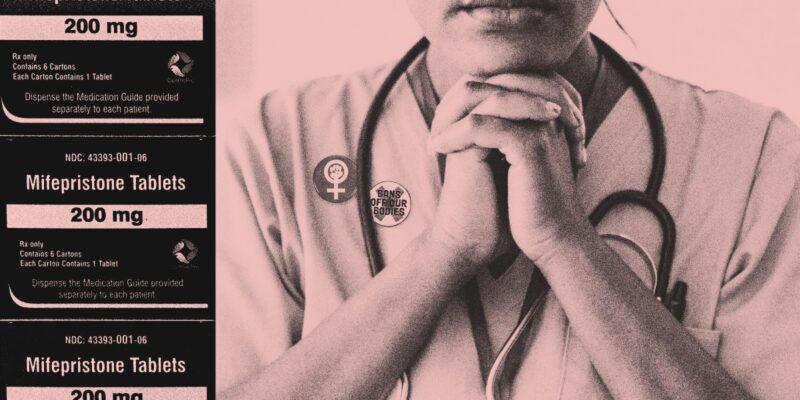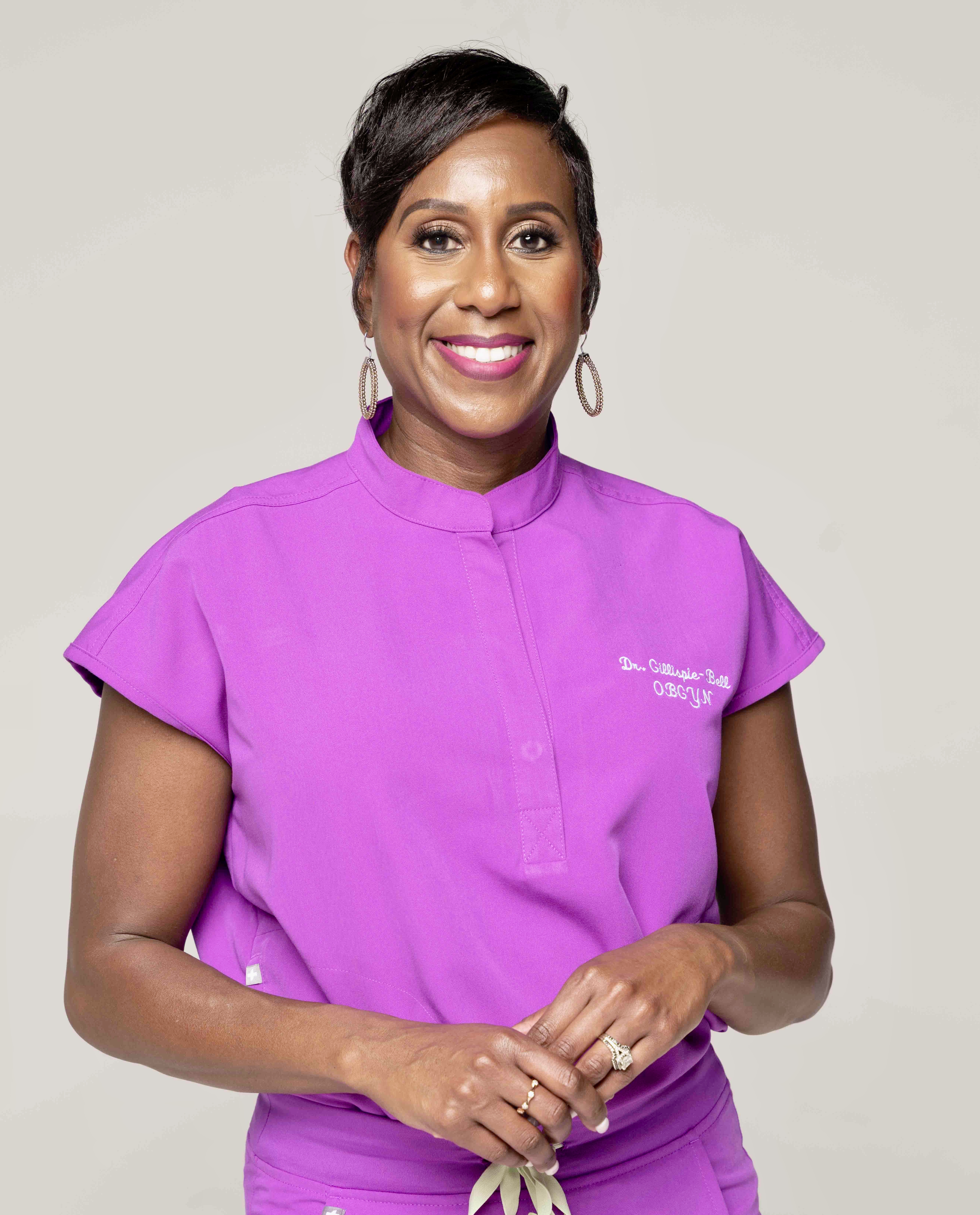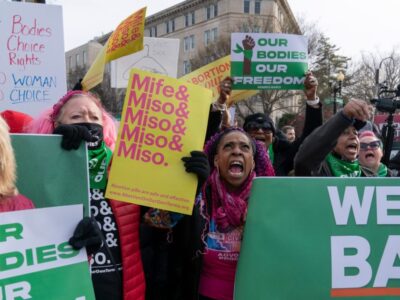
When Dr. Veronica Gillispie-Bell, a board-certified OB-GYN based in New Orleans, walks into a hospital room to deliver a baby, one of the first things she does is ask the nurse on duty, “Do we have our hemorrhage meds?”
Postpartum hemorrhage, or severe bleeding after childbirth, is a leading—but preventable—cause of maternal death in the US and around the world. It occurs in an estimated 1 to 5 percent of pregnancies. For doctors like Gillispie-Bell, who has testified before Congress about the Black maternal mortality crisis, having medications on hand to treat patients immediately is critical to saving lives. Until last week, those drugs included misoprostol, which also happens to be one of the two pills used in medication abortion.
But obtaining access to the drug has suddenly become far more complicated. On October 1, Louisiana—which has a near-total ban on abortion—became the first state to officially begin classifying misoprostol and mifepristone, the other drug in the standard abortion pill regimen, as schedule IV controlled substances. The new law threatens anyone who possesses the medications without a prescription—except for pregnant women themselves—with up to five years in prison and a $5,000 fine.
To say that this designation—the same one applied to opioids and other addictive drugs—is without scientific or medical merit is an understatement. More than 100 studies have found that mifepristone and misoprostol offer a safe and effective way to terminate a pregnancy. As I reported earlier this year, that includes a study showing that abortion pills are just as safe and effective when prescribed via telemedicine and mailed to patients as when prescribed and dispensed in person. In a letter to state Sen. Thomas Pressly, the Republican behind the new law, hundreds of doctors—including Gillispie-Bell—pointed out that mifepristone and misoprostol don’t have addictive potential or high rates of negative side effects, but do have important medical benefits, including managing miscarriages, preventing ulcers, and inducing labor.
But abortion opponents have shown time and time again that they are impervious to scientific and medical expertise. Pressly, for example, has publicly attacked journalists who have reported critically on the law and blamed the deaths of two Georgia women on abortion pills rather than the actual cause, a draconian abortion law that prevented them from obtaining emergency care. The anti-abortion group Louisiana Right to Life reportedly requested that the now-law be added as an amendment to legislation Pressly originally introduced to criminalize so-called coerced abortion, after his estranged brother-in-law spiked Pressly’s sister’s water with misoprostol when she was pregnant in 2022. The baby survived but was reportedly born prematurely with developmental delays. (In February, the husband was sentenced to 180 days in jail and 10 years’ probation.)
Now, mifepristone and misoprostol will have to be kept locked away inside hospitals along with other narcotics, the Louisiana Department of Health told health care providers last month. Staff at some hospitals have been bracing for the worst: running timed drills and sprinting through hallways to determine how long it would take to reach the locked cabinets where the drugs are now stored. Meanwhile, Republican state Attorney General Liz Murrill has accused the press and abortion rights activists of “disinformation and fear-mongering” about the new law.
Gillispie-Bell says she worries about what the delays will mean in emergencies, when minutes can mean the difference between life and death. “The last thing I want in the middle of a hemorrhage is for my nurse—who needs to be monitoring patients’ vital signs and doing other things—to have to leave the room to go get something,” she told me the day after the law took effect. “We want them at the bedside.” Our conversation has been edited for length and clarity.
Since abortion is already almost entirely banned in Louisiana, what impacts do you expect this new law will have?
Most of the impact—at least from my perspective—will be the ability to access the medications for non-abortion–related care. In recent years, we have seen improvement in severe maternal morbidity related to postpartum hemorrhage, and one of the reasons is because we have quick access to medication that can treat hemorrhage.
Misoprostol is not the first medication we go to for patients who are bleeding—Pitocin is—but it is one of the medications that we use with low cost and little side effects. I’m very concerned about the ability for medical staff to access those medications in hospitals. I’m also concerned for our patients to be able to access the medication in the outpatient setting—again, for indications that don’t have anything to do with abortion. Now that it’s been labeled as a schedule IV medication, I think there is [worry] that pharmacists are going to have concern about filling a prescription and whether it’s being used appropriately.
What are some other common situations in which mifepristone and/or misoprostol might be used?
I use misoprostol for patients when I’m going to place an intrauterine device, to soften the cervix and make it easier to place the IUD. We use it for induction of labor as well. We use it for patients that need to have an endometrial biopsy, typically for patients who are having post-menopausal bleeding, to make sure they don’t have endometrial cancer. One of the things that happens in menopause is the cervix gets really tight. And so we’ll use that medication to help open the cervix to facilitate being able to do the endometrial biopsy.
How do you think that mifepristone and misoprostol being classified as equivalent to narcotics will affect perceptions of these drugs and abortion stigma? Are you worried that these kinds of laws will spread to other states?
I do worry about the stigma that’s going to be associated with the medications because of this new law. And I am worried about this happening in other states. It’s really a dangerous slippery slope when we have legislation that interferes with what we know to be evidence-based medicine.
How did it feel for legislators to ignore the combined medical expertise of you and hundreds of other doctors when you asked them not to pass this bill?
It was disappointing but not surprising. We’ve seen something similar happen with so-called “abortion pill reversal” bills. Several states have enacted legislation that says if a doctor prescribes mifepristone for an abortion, the doctor has to tell the patient that if she changes her mind, she could take progesterone to reverse that abortion. That is absolutely not true. The American College of Obstetricians and Gynecologists has a statement that says there’s no evidence to support the claim that abortion pill reversal works. But that’s something that, in these states, as a provider, you have to do.
The lawmaker who introduced this bill said his sister was given these pills without her knowledge in an attempt to end her pregnancy. This was an argument that abortion opponents also brought to the Supreme Court last term in the case that tried to restrict mifepristone—they alleged that abortion pills can facilitate reproductive coercion and abuse, even though there’s no evidence that this is a widespread problem. What is your response to this?
It’s incredibly unfortunate that this happened to the legislator’s sister. But that is the only such case that I have any knowledge of. And so, while I understand his argument, it’s a very slippery-slope argument, because that logic can be applied to anything. If you take too much Tylenol, that can cause liver failure. If you take too much ibuprofen, that can cause kidney failure. Everything has a potential side effect and a potential risk. The US Drug Enforcement Administration defines a controlled substance as something that has addictive properties, and misoprostol and mifepristone just do not meet that criteria.

I know it’s early, but have you had to use these drugs yet to stop a patient from bleeding out?
Not yet. Hemorrhages are not something that happen every single day, so it’s going to be some time, I think, before we see the real impact.
Given that postpartum hemorrhage is one of the leading causes of maternal mortality nationwide, do you think this law will increase maternal deaths in Louisiana? Do you think we’re going to hear stories similar to the ones about the women who died in Georgia?
As physicians and health care providers, I believe we are going to do whatever we need to do to make sure our patients are taken care of. So I really don’t think we’re going to see an increase in maternal deaths. I think we may see an increase in maternal morbidity. We may see an increase in blood transfusions, for example, because we’re not able to control hemorrhages as quickly. But I don’t think that we will necessarily see an increase in deaths.
But it definitely is going to be a stress on the system. It’s one more thing we have to do, and that one more thing takes time. And when we’re talking about a hemorrhage, time matters.
Do you worry about the impacts the new law will have on recruiting OB-GYNs to Louisiana? And have you already seen impacts to recruitment from the abortion ban?
Yes. The Association of American Medical Colleges recently published a study that shows that since the Dobbs decision, the states with the strictest abortion bans have had a decrease in medical students applying for residency in any specialty, not just OB-GYN care. As we continue to pass more restrictions, I think that’s only going to make that problem worse.















